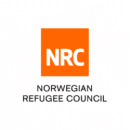Evaluation of the Information, Counselling and Legal Assista
Job Description
Consultancy Announcement
Evaluation of the Information, Counselling and Legal Assistance Programme, NRC Palestine- Gaza Office
NRC seeks a qualified individual(s), group(s) or company to execute an evaluation of the ICLA programme in Palestine- Gaza, which has been in operation since 2009.
COUNTRY : Palestine, Gaza
PERIOD : August 2013 – September 2013
REPORTING TO : ICLA Project Manager, Gaza
A. Background
The Norwegian Refugee Council (NRC) works globally with refugees, internally displaced persons and those at risk of forced displacement to enable the groups involved to claim and defend their fundamental rights, including the right to return to their areas of origin and the right to enjoy one’s private property. To support that end, NRC focuses on five core competencies: shelter; emergency food security and distribution; education; camp management; and information counselling and legal assistance (ICLA). NRC has global ICLA expertise and currently implements ICLA projects in 14 countries worldwide.
In April 2009, following a number of NRC-led desk reviews and assessments, NRC launched its ICLA programme in the West Bank, including East Jerusalem. As a result of a Gaza specific needs assessment, an ICLA project was initiated in November 2009, where a Legal Aid Centre, staffed with qualified lawyers, was opened to provide legal assistance on housing, land and property (HLP) matters to persons affected by the conflict or otherwise displaced. The ICLA Gaza programme provides information, counselling and legal assistance to beneficiaries in range of areas of HLP law. The current evaluation will review an EU-funded project focusing, inter alia, on women’s HLP rights and the resolution of HLP disputes, including inheritance disputes, through formal and informal justice mechanisms. NRC works with a local partner, the Palestinian Centre for Democracy and Conflict Resolution (PCDCR) on this project*.
B. Purpose of Evaluation and Intended Use
The main purpose of the evaluation is to measure through independent analysis and observation the changes produced by the ICLA project funded by EU (EIDHR/2011/77; ILFL1212) in Gaza. The evaluation results will inform and influence the future work of the ICLA programme in Gaza, and possibly other NRC ICLA programmes.
The evaluation’s findings and conclusions shall be shared with the NRC Palestine staff, implementing partners, NRC Headquarters in Oslo, other ICLA programme managers and external consultants engaged in ICLA programme setup, assessment and phase-out. They might also be shared with donors and other interested partners and stakeholders when deemed adequate.
C. Scope of Work and Methodology
The evaluation should review all aspects of the current ICLA EU project in the Gaza Strip which started on 01 October 2012 and continues to 30 September 2013.
The evaluation methodology should include:
- Desk Study and Document Review: The evaluation team shall examine independent country reports, topical/thematic reports produced by the NRC, prior evaluations, NRC global and country strategy documents, grant agreements, proposals, donor and internal reports, internal legal assistance guides/documents, training documents, and any other relevant materials.
- Field Visits to study the work of ICLA Gaza and PCDCR field offices.
- Stakeholder Interviews, including interviews with key NRC staff, PCDCR staff, beneficiaries, family members and traditional leaders.
- Beneficiary focus groups and surveys, including at least 12-15 focus groups and 150-200 individual community/household surveys by phone or in person with both ICLA and PCDCR’s beneficiaries.
- Case Studies including at least 10-15 case studies with women who have experienced positive/negative outcomes through interventions by NRC ICLA or ICLA partner PCDCR.
Additionality: The evaluation should assess whether there were any measurable results/changes in the lives of project beneficiaries that are directly attributable to project interventions. Outcomes and additionality should be quantitatively assessed as far as possible, using methods specified by the evaluation team and agreed to by NRC. Qualitative methods are also encouraged and should demonstrate whether outcomes are grounded in the context of the intervention as well as providing an explanation of why and how the project affects change.
Evaluation principles:The evaluation as a whole will be guided by the following ethical rules/ considerations:
- Openness – of information given, to the highest possible degree to all involved parties
- Publicity/public access – to the results when there are no special consideration against this
- Broad participation – the interested parties should be involved where relevant and possible
- Reliability and independence – the evaluation should be conducted so that findings and conclusions are correct and trustworthy
D. Issues to be covered
The evaluation shall aim to identify any changes resulting from ICLA EU project intervention, establish a connection between the change and the project inputs and measure the magnitude of the change. The evaluation must take account of the following criteria; relevance/appropriateness, effectiveness, efficiency, impact and connectedness/sustainability. In doing this, it should address the following questions:
- What is best practice in the project design to both NRC ICLA and PCDCR?
- Does the project properly assess beneficiary need?
- Has the project defined criteria for selecting beneficiaries in accordance with its objectives? If these exist, have they been applied consistently?
- Are HLP disputes and violations being handled in an effective and efficacious manner?
- Is the project perceived as being effective by relevant stakeholders, including beneficiaries, implementing partners and local leaders?
- Is the collaboration with an implementing partner in the project the most appropriate and cost-effective modality?
- Has the project developed the capacity of the PCDCR in assisting women to access and assert their HLP rights through informal justice mechanisms?
- How are capacity-building activities, both for NRC staff and external stakeholders, including traditional leaders and partner lawyers, enhancing the durability of the results?
- What positive and/or negative effects (intended/unintended) are produced by the project’s intervention?
- Are beneficiaries or others being harmed as a result of the project?
- What change in individual outcomes for women can be measured through the dispute resolution process?
- To what extent has the project contributed to a different approach to dealing with women’s inheritance and HLP issues in the Gaza Strip?
- Is the overall situation of women in relation to HLP rights being improved as a result of project activities?
- Can any level of normative or other change be measured in the community’s acceptance of women’s empowerment and HLP rights as a consequence of the project?
- Has the project contributed to the resolution of HLP disputes for women, taking account of social and cultural considerations and human rights issues?
- Are the project activities a good use of resources, consistent with the long-term objectives of the program to effect positive change?
E. Evaluation Team
The evaluation team should be led by a person with competence in legal assistance, human rights and protection principles, and who has worked with justice systems and the development of the rule of law in both a humanitarian and development context. This individual should have knowledge of and experience with both formal and informal justice systems. Prior experience with the Palestinian conflict is helpful, as is experience in relation to gender issues faced by female beneficiaries and cultural issues in Gaza.
Ability to produce a quality written analysis in English is required. Fluency in Arabic is required to carry out the field interviews and focus groups. Prior evaluation experience and familiarity with the logical framework approach is required. Additional support staff could be hired for the duration of the project to assist with document collection, scheduling, research, interviews as necessary.
All evaluation team members should be gender aware. Given the nature of the ICLA and PCDCR project activities, female field staff must be available to conduct female focus groups, interviews and home visits.
F. Time Frame and Budget Considerations
All field interviews and the entire evaluation must be completed and submitted by 30 September 2013.
G. Deliverables and Reporting Deadlines
The evaluation team will submit two reports to the NRC’s ICLA Gaza Project Manager and Deputy Project Manager.
- Inception report (15 August 2013): Following the desk review and prior to beginning field work, the evaluation team will produce an inception report subject to approval by NRC. This report will detail a draft work plan with a summary of the primary information needs, and the methodology to be used (description of how data will be collected, sampling framework, and data sources). The inception report should highlight the strategy for addressing the analysis of additionality and efficiency. This includes reviewing the type and detail of data available for analysis, the analytical approach selected, and a justification for that approach.
- Draft final report (10 September 2013):A draft report should be submitted to the ICLA Project Manager, who will review the draft and provide feedback to the evaluation team by 20 September 2013.
- Final report (30 September 2013): A final report should be submitted to the ICLA Project Manager, with the evaluation team having addressed NRC’s comments as appropriate.
The final evaluation report must systematically review the programme, offering factual support, analysis of activities and synthesis of all information received for purposes of conclusion/recommendations. It should also reference all the sources used to draw conclusions and make recommendations. A final report offering a mere repetition of facts and activities will not be approved.
The evaluation report should consist of:
- Executive summary, including recommendations
- Table of contents
- Methodology including caveat(s) for potential shortcomings
- Main findings (to include commentary and analysis addressing evaluation purpose and outputs, including a section dedicated to the issue of particular lessons learned)
- Conclusion and recommendations
- Appendices, to include evaluation terms of reference, maps, a record of interviews and focus groups conducted and a bibliography.
Application Deadline: 1 August 2013, by 15:00h (applications submitted after the deadline will not be taken into consideration)
All applications must include the following:
§ CVs for each proposed team member
§ A plan for the evaluation and an outline of its methodology and timeline, maximum 10 pages in total;
§ Proposed budget for the evaluation, covering all consultancy fees, including the number of expected working days, travel, per diem, insurances and communication.
§ Details of support needed from NRC (logistics, accommodation, etc.)
The maximum available budget for the consultancy is USD 8,000 inclusive of all costs and expenses.
Applicants may submit completed bids in sealed envelopes to NRC Gaza office, first floor, Hejji building, Rasheed Street, Gaza, Al Mena.
ــــــــــــــــــــــــــــــــــــــــــــــــــــــــــــ ــــــــــــــــــــــــــــــــــــــــــــــــــــــــــــ ـ
* For more information on the ICLA Gaza programme, please contact the NRC Legal Aid Centre, first floor, Hejji building, Rasheed Street, Gaza, Al Mena
Tel: +972 8 2860218
Email: [email protected]
Jobs.ps, Ltd. All Rights Reserved.
Job Requirements
Job Details
Job Title
Evaluation of the Information, Counselling and Legal Assista
Deadline
01 - Aug - 2013
Location
Gaza Strip
Job Type
Contract and Consultation
Position Level
Mid Career
Degree
Bachelor's degree
Experience
No Experience
Category
legal
Application Instructions
when applying to a job online , never give your
credit card or bank account information,
or perform any sort of monetary transaction to a prospective employer. For your privacy and protection:
Latests Jobs By
NRC Gaza
Job Title
Date Posted
Livelihoods and Food Security Project Officer
Gaza Strip
12, Mar
Logistics Assistant
Gaza Strip
11, Mar
Shelter Coordinator
Gaza Strip
17, Feb
Safety and Security Officer
Gaza Strip
10, Feb
Monitoring Evaluation & Learning Assistant
Gaza Strip
10, Feb
Shelter Cluster Information Management Officer
Gaza Strip
10, Feb
WASH Coordinator
Gaza Strip
10, Feb
Cash and Market Technical Officer
Gaza Strip
24, Jan






